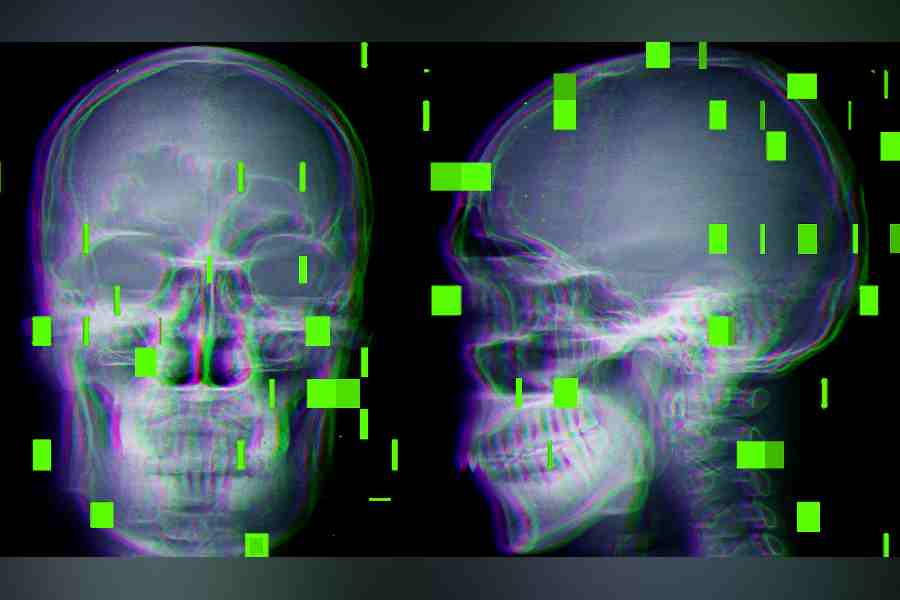 |
| Rahul Gandhi outside Parliament on Tuesday. Picture by Prem Singh |
London, Feb. 18: Rahul Gandhi took the name “Rahul Vinci” when he studied for a year at Trinity College, Cambridge, from 1994-95, it was confirmed today.
After his father’s assassination in 1991, those closest to Rahul were paranoiac about his safety.
University sources pointed out that the “Red Book”, which contains the names of Cambridge University members, lists him as: “VINCI, Rahul T MPHIL95.”
That means Rahul Vinci took his MPhil in 1995 (as confirmed in a letter issued by Dr Alison Richard, a former vice-chancellor of Cambridge though she made no mention of the surname Rahul Gandhi used).
The “T” stands for his college, Trinity, where both his great grandfather, Jawaharlal Nehru, and father, Rajiv Gandhi, were undergraduates — the former read natural sciences, the latter engineering, though it is generally assumed Rajiv did not complete his degree.
(Rajiv himself told the joke about a tutor asking him about the badge on his blazer on his very first morning in Trinity.
“What’s that?” the tutor asked.
“That’s the lamp of knowledge, sir — I was at The Doon School,” replied Rajiv proudly.
“Well, Gandhi,” responded the tutor, “It’s a pity they did not light it while you were there.”
Mani Shankar Aiyar (Doon and Trinity Hall, Cambridge) revealed that when he stood for secretary of the Union Debating Society, “Rajiv voted for me — it was his first political act.”)
Rahul’s grandmother, Indira Nehru, was at Somerville College, Oxford, reading history, but ill-health prevented her from returning after a year.
Rahul’s parents met at Cambridge. Rajiv and Sonia Maino found romance when she enrolled as a student of English at one of the many language schools in Cambridge in the 1960s. She was not actually at the university.
When Rahul first asked to look around Trinity, he was escorted by Dr Anil Seal, a distinguished historian and longtime Fellow of the College who has been in Cambridge since 1956.
When addressing a conference on education in London last November, Seal was listed on the programme as “personal tutor to Prince Charles, Rajiv Gandhi and Rahul Gandhi”.
Three princes, as it were.
He began his keynote address by immediately correcting what he regarded as a serious error — he had introduced Rahul to Trinity but had not actually taught either him or his father.
For academics, these little qualifications are necessary.
Seal, who describes himself as “the son of a Bengali father and a Hungarian mother”, began: “Distinguished participants, ladies and gentlemen, first of all a correction: yes, I did teach Prince Charles. Yes, I was instrumental in bringing not perhaps our star pupil Rajiv to Cambridge. Yes, I had a hand in getting Rahul when he came incognito to Trinity under the name of Da Vinci some years back but I didn’t actually teach either engineering or development study.”
He then added: “You all know those who can do; those who cannot teach and those who can do neither become administrators or experts in the matter of education. My credentials lie somewhere in between — I am an historian of modern India and of imperialism and nationalism and their interplay and for about a quarter of a century, after that ill-considered rise in fees in the early ’80s which made it extremely difficult for talented students from modest backgrounds to come to UK universities, I set up and ran a number of trusts which brought perhaps 15,000 talented students from overseas to Cambridge.”
It is understand about 1,000 of them were from India but Rahul was not one of them.
Seal will be pained to learn he got one fact wrong — Rahul did not come under the name “Da Vinci” but as “Rahul Vinci”. Only Rahul will be able to say what name appears on his MPhil certificate.
Seal is himself an interesting don who is now almost part of the furniture at Trinity, a college with strong Indian connections — among its Fellows it boasts two Indian origin Nobel Laureates, Amartya Sen (economics) and Venkatraman Ramakrishnan (chemistry).
Srinivasa Ramanujan was also at Trinity when he collaborated with the mathematician G.H. Hardy.










